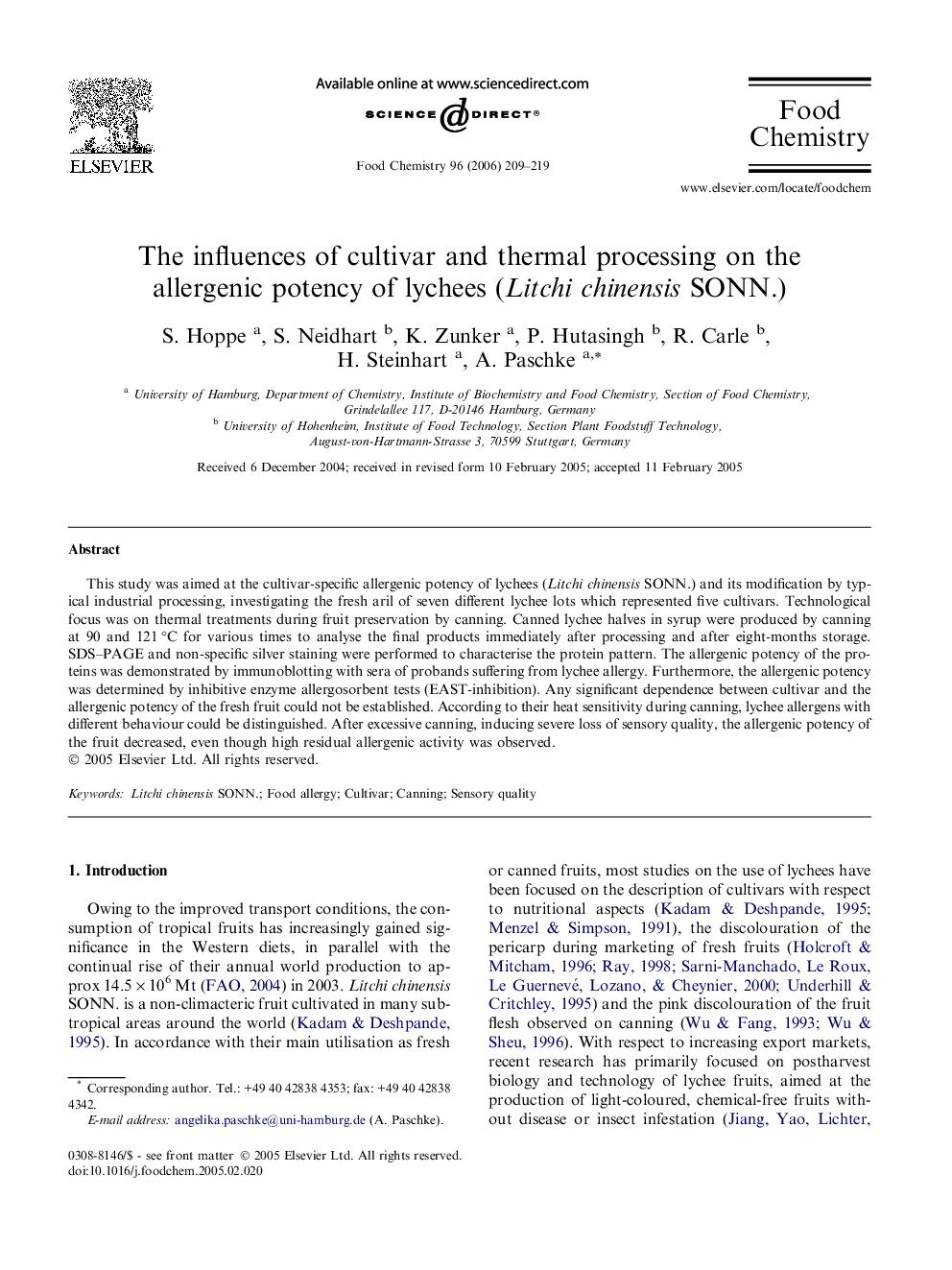| Article ID | Journal | Published Year | Pages | File Type |
|---|---|---|---|---|
| 1191592 | Food Chemistry | 2006 | 11 Pages |
This study was aimed at the cultivar-specific allergenic potency of lychees (Litchi chinensis SONN.) and its modification by typical industrial processing, investigating the fresh aril of seven different lychee lots which represented five cultivars. Technological focus was on thermal treatments during fruit preservation by canning. Canned lychee halves in syrup were produced by canning at 90 and 121 °C for various times to analyse the final products immediately after processing and after eight-months storage. SDS–PAGE and non-specific silver staining were performed to characterise the protein pattern. The allergenic potency of the proteins was demonstrated by immunoblotting with sera of probands suffering from lychee allergy. Furthermore, the allergenic potency was determined by inhibitive enzyme allergosorbent tests (EAST-inhibition). Any significant dependence between cultivar and the allergenic potency of the fresh fruit could not be established. According to their heat sensitivity during canning, lychee allergens with different behaviour could be distinguished. After excessive canning, inducing severe loss of sensory quality, the allergenic potency of the fruit decreased, even though high residual allergenic activity was observed.
